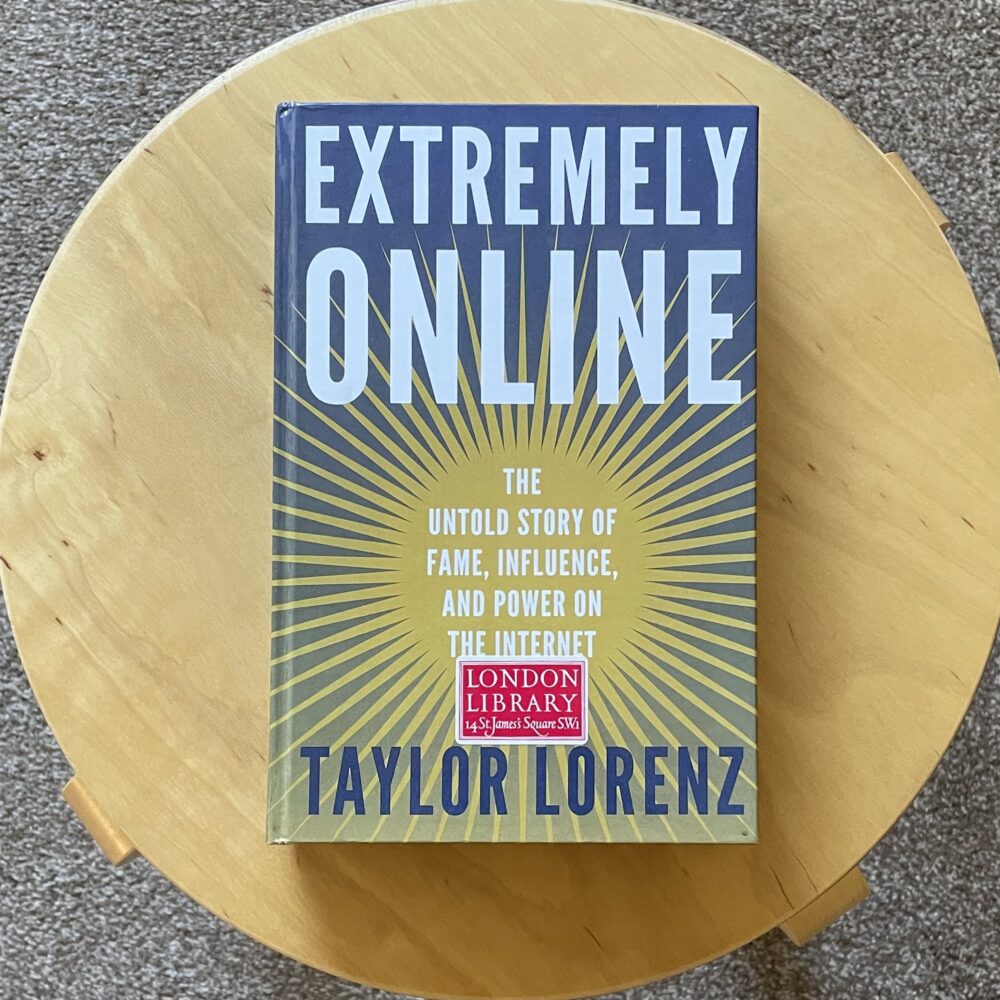‘Extremely Online’ by Taylor Lorenz

This book is the story of social media, but rather than concentrating on the platforms themselves, it focuses on the most popular users. This struck me as a good idea: we wouldn’t, for example, try to tell the history of cinema without including the film stars who drew in audiences in the first place, so why are the star attractions often missing from the history of social media?
In Taylor’s own words,
Extremely Online offers a social history of social media.
Having read the book, it turns out that the problem is that social media stars just aren’t that interesting. Honestly, there is only so much I wanted to know about ‘Grumpy Cat’ and Lorenz vastly over-delivers. Even after Lorenz’s four-page explanation, I don’t understand the wider relevance of ‘Dramageddon’, an incident in which some YouTubers famed for make-up tutorials fell out with one another.
Lorenz’s research also often feels limited: it’s as though she buys into the hype a little too much. Grumpy Cat’s story also provides an excellent example of this flaw. Lorenz writes:
In 2016, she joined the cast of the Broadway musical Cats.
This left me wondering: how could a cat play a meaningful role in Cats? A few minutes of searching online reveals that this event was heavily promoted as such, talked up as a ‘Broadway debut’, but turned out to amount to being a ‘guest of honour’ at a single performance. That doesn’t amount to ‘joining the cast’ in any offline, reality-based view of the world, and it’s disappointing that Lorenz reported it in that way.
I enjoyed some sections and observations in Extremely Online. I hadn’t previously considered the argument that the lowering of production standards in television which necessarily accompanied the COVID-19 pandemic—chat shows filmed on Zoom from hosts’ homes, for example—helped online content with similarly low standards to become more mainstream.
I’m left with a better appreciation for the effort and professionalism of people who create social media content and the loyalty they come to command within their audience. Yet, I’d have preferred an analysis which considered the broader societal impact of this new form of celebrity rather than viewing it only on its own over-hyped terms.
Frankly, this book was not what I anticipated, and it failed to pique my interest as much as I had hoped. It might resonate with those deeply entrenched in social media culture, but I question its relevance to a wider audience.
This post was filed under: What I've Been Reading, Taylor Lorenz.
